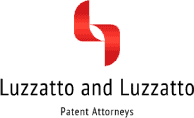


Enforcing trademark rights in Israel can be done through the usual channels of the courts, the police and Customs. Filing petitions before the registrar of trademarks, particularly in cases of conflicting applications, should also be considered.
Israeli law provides a host of options to enforce trademark rights, depending on several factors, including:
- The type of trademark involved (ie, whether registered, unregistered or famous)
- The venue of choice (ie, the Trademark Office, the courts or arbitrators).
- The initiator (ie, the rights holder, Customs or the police).
This enables mark owners to choose the best possible option to enforce their rights.
Enforcement before the registrar of trademarks
Enforcement starts with prevention and, therefore, opposition proceedings can be initiated before the registrar of trademarks to prevent the registration of a confusingly similar mark. Accepted trademark applications are published for opposition electronically and a rights holder which feels that an application infringes its exclusive rights to a mark, or may constitute unfair competition, may oppose the registration. The Supreme Court has ruled that the fact that the opponent’s trademark is not registered in Israel is not, in itself, a reason to prevent it from relying on the mark if it is capable of proving potential damage and a similarity of the goods to which its mark is applied to those for which the proposed application is intended.
Conflicting applications
The Trademark Ordinance provides rules for dealing with conflicting applications to register trademarks that are identical or confusingly similar in respect of the same goods or goods of the same type. Proceedings can be filed provided that neither of the conflicting applications has been accepted for registration. Such proceedings require proof of seniority and may result in the rejection of one application or the registration of both trademarks under certain limitations, designed to avoid confusion and unfair competition.
Cancellation proceedings
The law gives the owner of a famous trademark not registered in Israel the right to file a request to cancel a registered mark within five years of the date of registration if it can be shown that the mark was registered with an intent to harm unlawfully the owner of the famous mark so as to ride on the reputation of the famous mark and prevent registration by its rightful owner in Israel. To succeed in the cancellation of the registered trademark, it is necessary to show that a legitimate commercial interest is harmed by the registration.
Under the current Trademark Ordinance one can choose to submit a cancellation request to either the registrar of trademarks or the Supreme Court. When the chosen venue is the registrar of trademarks, the proceedings are very similar to an opposition, although the burden of proof is on the petitioner.
Enforcement proceedings in the courts
Civil complaints
Israeli legislation offers greater protection to registered marks than to famous unregistered trademarks. While the law states that the use of a mark similar to a registered mark constitutes infringement, this is not necessarily the case for famous unregistered marks. Furthermore, the law considers that the use of a registered trademark for the purpose of advertising goods of the same type as those for which the mark was registered constitutes infringement, but does not extend this definition to famous unregistered marks.
Only the owner of the trademark can automatically bring suit. A licensee can do so only as a proxy of the owner, if empowered by the owner to do so. However, the licensee will be viewed merely as the representative of the plaintiff mark owner.
Most lawsuits seek two remedies: an injunction that would stop the infringement and damages. However, the owner of a famous mark that is not registered in Israel can obtain only an injunction on the basis of trademark law. To obtain monetary compensation it will have to rely on another basis. The owner of a registered trademark enjoys additional advantages – for instance, it has been held that actual infringement is not required to prove that an intent to infringe also existed. Moreover, there is no requirement for a registered mark owner to have suffered damage to bring a lawsuit. An additional advantage is that, where a registered mark has survived successfully opposition proceedings, the decision of the registrar of trademarks is res judicata – that is, an infringer will not be able to claim later that the mark is invalid.
Relief in the courts
Damages: The owner of a mark that has been infringed can ask the court to award damages, although proving the extent of such damages is not easy. The rights holder may also demand restitution of the profits made by the infringer, a complex task which typically requires the assistance of a financial expert. An alternative is to calculate the royalties that the infringer would have had to pay the mark owner had the infringer been a licensee, although the hurdle here is to prove what constitutes “reasonable royalties”.
In general, judicial policy in trademark matters leans towards:
- Real and reasonable compensation for the trademark owner.
- Damages that are commensurate with the extent of the infringement, the aim being to correct only the damage that the infringement has caused.
However, because of the difficulties in proving actual damage and calculating compensation, the courts often estimate the amount and award damages on that basis. When a complaint is based on alternative grounds to trademark infringement, such as passing off, it is possible to request damages without proving actual damage up to an amount not exceeding IS100,000 (approximately $25,000).
Additional relief: The court has the power to grant additional relief to prevent infringing goods from reaching the market. Such relief includes:
- The destruction of the infringing goods or the goods that were instrumental to the infringement (in coordination with the police).
- Transferring ownership of the goods to the plaintiff against their value (the value being calculated without taking infringement into account).
- Any other action connected with the goods.
Interlocutory relief: Legal proceedings may be lengthy. In order to prevent the infringer from continuing to reap the benefits of the infringement before the proceedings come to a conclusion, the mark owner may petition the court for interlocutory relief, which essentially consists of a preliminary injunction to stop the infringement. A trademark owner may also petition the court for an Anton Piller order.
The conditions under which interlocutory relief may be obtained are:
- Prima facie evidence of the rights – in this context, the registration of a trademark will be sufficient evidence and the courts are not inclined to discuss arguments against the validity of the trademark registration at the interlocutory stage.
- The actual need of the interlocutory relief to maintain the status quo.
- The balance of convenience.
The alleged infringer may raise the following defences:
- The case falls under the doctrine of laches or estoppel – the trademark owner must file suit expeditiously.
- The plaintiff is not acting in good faith.
- The balance of convenience favours the defendant.
- The trademark was not eligible for registration.
- The registered owner has not used the mark.
- There has not been any infringement.
Alternative grounds
Grounds that can be used to support a claim of trademark infringement are not limited to trademark laws: other laws can be applicable. These include:
- Basic rights
- Copyrights
- Passing off
- Unfair competition
- Misleading description
- Unjust enrichment
Criminal proceedings
Trademark laws define a number of acts as criminal offences. In practice, however, the law enforcement agencies rarely indict trademark offenders. The law permits a mark owner to file a private criminal complaint against the infringer. The rights
holder then becomes a private accuser and has to manage the proceedings against the offender. While the burden of proof that rests on the defendant in a criminal case is heavier than in a civil case, the plaintiff cannot claim monetary compensation; at best, a fine will be imposed on the infringer, which will be paid to the Treasury. Such proceedings are not very popular.
Enforcement proceedings by government agencies
Customs
Efficient proceedings have been put in placeby Customs to stop (and inform trademark
owners) of goods that appear to be counterfeit. In spite of limited manpower,Customs provides an efficient service to trademark owners.
Police
As stated above, trademark infringement is also a criminal offence that may lead to a term of imprisonment of up to three years and heavy fines. A special unit of the Israeli
police deals with IP issues. The unit has stepped up its activity in recent years.
Conclusion
Trademark owners will find a variety of options that can be used to enforce their rights in Israel. An understanding of the intricacies of the various options is crucial in order to enjoy fully this flexible system.

Relevant Articles
Regarding Patent Term Extensions in Israel
